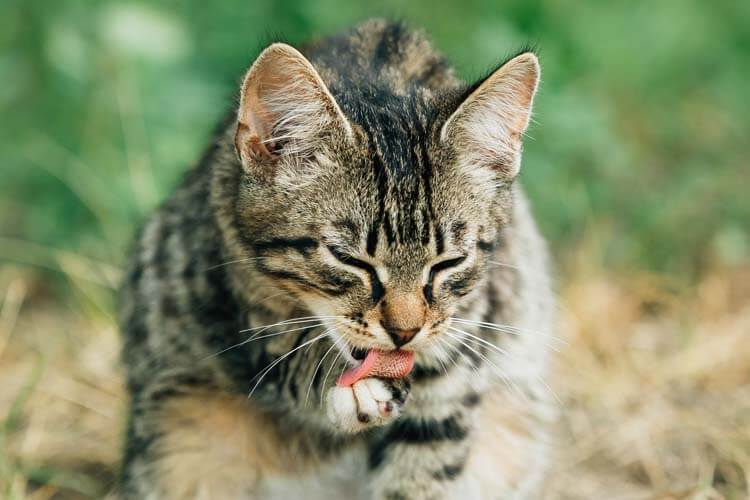Why do cats make their paws lick? Can it get too much?
February 24, 2022

Have you ever seen your cat laugh at his paws and ask what the reason was? It turns out that they’re not only clean to do it. As committed fans of regular grooming, cats spend a significant amount of time looking nice. Still, paw licks are also connected to the physical and emotional well-being of your kitty.

Why do cats make their paws lick?
Pairing is one method cats purify themselves – it helps cats grooming by spreading saliva throughout their body. And it takes a lot of kitty time to primp: ” ” Dr. Pamela Perry, a veterinarian and an animal behavior fellow at Cornell University’s College of Federal Veterinary Medicine, notes that cats usually spend between 30 and 50 percent of their days grooming. Since saliva helps cats cool when overheated, liquidating the paws gives the additional advantage of high-temperature cooling relief. Another reason why the cats lick themselves is that lice—and care in general—livers endorphins, the body’s feel-good hormone, according to Cummings School of Veterinary Medicine at the Tufts University. This is an exercise in relaxing.Excessive Paw Licking
If your cat pays too much attention to his paws, it probably points to a medical problem. Instead of stopping the habit itself, take your kitten to the clinic so that the problem of your cat’s behavior is identified and dealt with. The Cummings School of Veterinary Medicine notes that numerous physical and psychological problems might result in excessive care.- Allergies
- Fleas
- Dry skin
- A neurological condition
- Stress or anxiety
Diagnosis and Treatment
Is your cat too much liquid for your paws? If you think that their conduct is extreme, observe them. Note when and how long you spend licking your paws. Note any skin or fur changes, such as hair loss or discomfort. Check for any discomfort symptoms in the paw, too. Make sure you mention any changes to your veterinarian if you see them. This information helps your veterinarian assess if your kitten laces your paws too often or too abrasively. Your veterinarian is taking a physical examination of your cat at the visit. They will probably perform specific tests to establish their behavior’s cause and therapy. Treatment may vary depending on your veterinarian’s diagnosis. However, it may involve skin cream, oral or injectable anti-inflammatory medicines, feed adjustments to your cat, flea and tick prevention medicines, pheromone therapies, or environmental changes. Environmental changes or enrichments provide your cat with additional action and excitement within the house. This may be as easy as feeding them with a food puzzle and using their climbing tendencies to seek for their toys and construct cat trees and shelves.SouthForkMercantile.com © Copyright 2024. All Rights Reserved.
